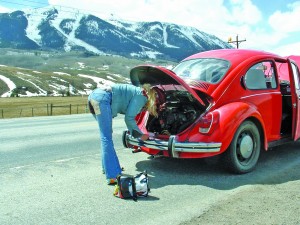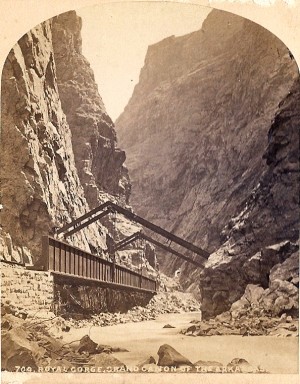Breaking into the Backcountry
By Steven Edwards
University of Nebraska Press, 2010
ISBN: 978-0-8032-2653-1
$16.95, 179pp.
Reviewed by Eduardo Rey Brummel
Just last week I had a brief conversation with a friend regarding the lack of male rites of passage these days. Breaking into the Backcountry is about things explicit and implicit. One of those things is Steve Edwards’ rite of passage.
He writes, “The call came from John Daniel, the contest’s coordinator: I had somehow managed to win the PEN/Northwest Margery Davis Boyden Wilderness Writing Residency, whose prize was a small cash stipend and seven months as caretaker of a backcountry homestead in what John called ‘unparalleled solitude’ along the federally designated Wild and Scenic Rogue River in southwestern Oregon.”
For Edwards, in his mid-twenties, still shattered and scattered from his recent divorce, standing at the threshold of this door unexpectedly thrown open by life made him feel thrilled and apprehensive: “I didn’t give much thought to what living in unparalleled solitude might mean or what I would have to leave behind. Honestly, I was happy to have won something … I’m from Indiana, born and raised. Indiana is the only life I’ve ever known”
After a mandatory visit to the homestead the summer before his real arrival, bears become something of a totem for Edwards’ encroaching tenure in the terra incognita of Rogue, Oregon. All he knows of either are fantastic stories of fatal beauty, cultivating in him images hazy and haunting, terrifying and tantalizing. His dreams begin filling with them.
The following April, Edwards’ father rides with him in the pickup, for the 2,316-mile, three day drive, staying with him the first week. His father returns later for a shorter visit bringing Edwards’ mother. Later still, a buddy visits. There will also be weekly treks into town for laundry and phone calls, and a handful of visits from the owners of the homestead, but otherwise, Edwards must fill the seven months with the pleasure of his own company. He has a list of caretaker duties, and of course there’s writing, since that’s what got him here in the first place, but, “no matter heavily I stuff my days with chores, reading, or remembering … there is always an hour or two at night, and it’s often longer, that is beyond by ability to fill. An hour or two when loneliness is a bitter taste in my mouth.”
In college I was told there are basically but two types of stories: someone loses or is looking for something; and stranger comes to town. Breaking into the Backcountry, is both.
Midway through his tenure Edwards returns from a hike, finding the combination of low clouds and setting sun has turned to pink everything he sees, causing it to glow. This thrilling moment turns melancholic when he looks around and there is no one with whom to share it. He then wonders how many glorious sights and epiphanies he’s lost because there’s been no one to share the remembering. It is at this point, a voice comes to Edwards, telling him: The point isn’t to remember. The point is to live a life as beautiful as what you see. Then you share it with everyone.
Gentle readers, let us “Make it so.”
Eduardo Rey Brummel is thankful for the graciousness of small-town regional librarians, who allow books such as this one to arrive into his hands.

